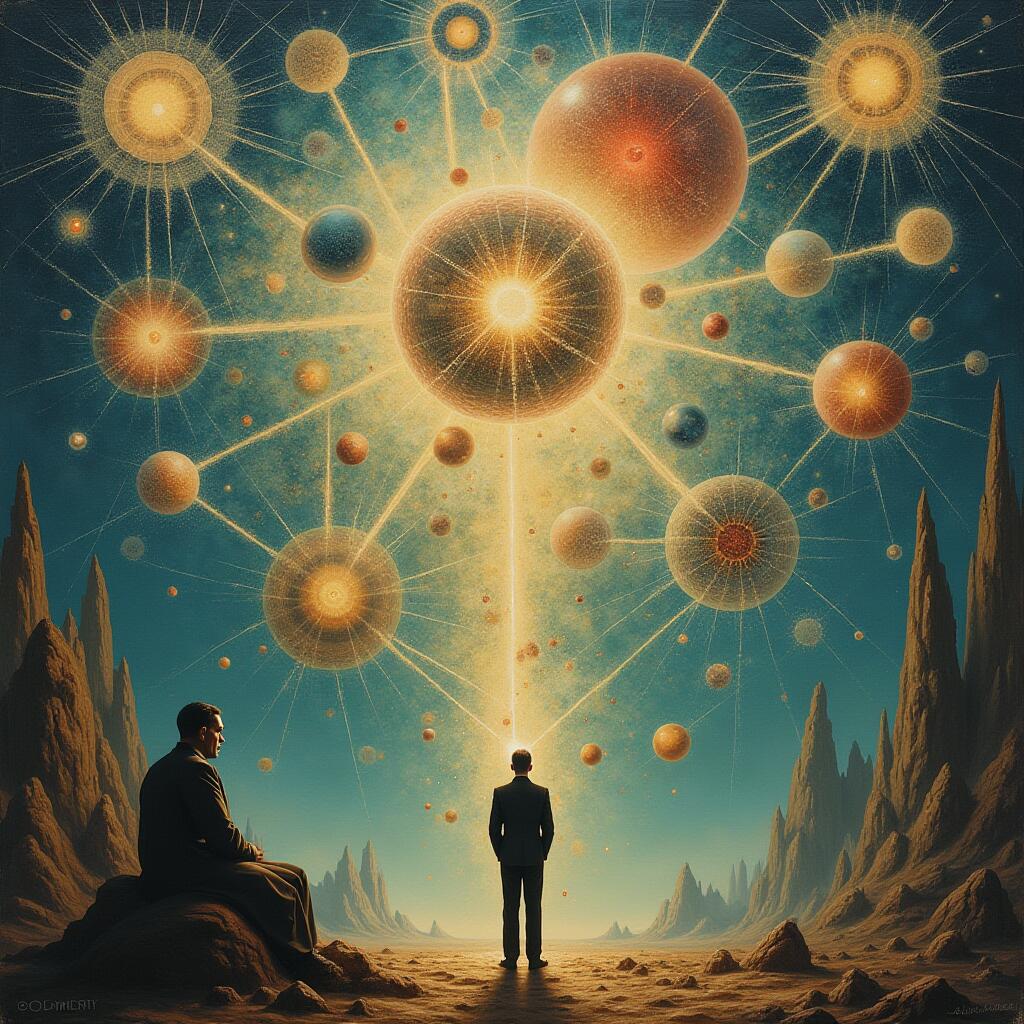In "The Fabric of Reality," physicist David Deutsch presents a bold and integrative theory of the universe. The book brings together four major intellectual strands—quantum physics, epistemology, the theory of computation, and the theory of evolution—to construct a comprehensive understanding of reality.
Deutsch’s interpretation of quantum physics, particularly the many-worlds theory, serves as the foundation for his argument. He contends that multiple parallel universes exist simultaneously, and these universes interact in ways that shape our reality. This idea is intertwined with Karl Popper's epistemology, which emphasizes the importance of falsifiability in the pursuit of knowledge.
Deutsch also draws on Alan Turing's theory of computation to explore the limits of what can be known and calculated, suggesting that the universe itself can be understood as a vast computational entity. Finally, he incorporates Darwinian evolution, arguing that the process of natural selection not only applies to biological organisms but also to ideas and knowledge.
The book challenges readers to rethink their understanding of the universe, encouraging them to see reality as a complex, interconnected web where knowledge and existence are deeply intertwined. Deutsch’s work is not just a scientific exploration but also a philosophical inquiry into the nature of truth, existence, and progress.
Why You Should Read "The Fabric of Reality"
For anyone interested in deepening their understanding of the universe, "The Fabric of Reality" offers a thought-provoking and intellectually stimulating journey. David Deutsch’s synthesis of quantum mechanics, philosophy, computation, and evolution presents a unique perspective that challenges conventional wisdom and opens up new possibilities for understanding the nature of existence.
Whether you are a scientist, philosopher, or simply a curious reader, this book provides valuable insights that are both intellectually rewarding and deeply engaging. It’s a must-read for those who wish to explore the frontiers of knowledge and consider the profound implications of a reality shaped by multiple universes, evolving ideas, and the limitless potential of human understanding.

